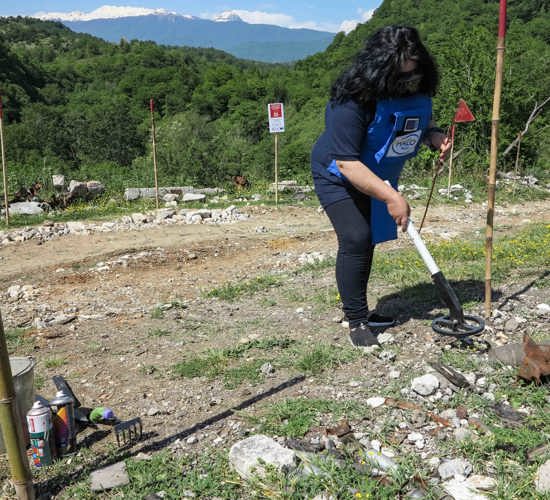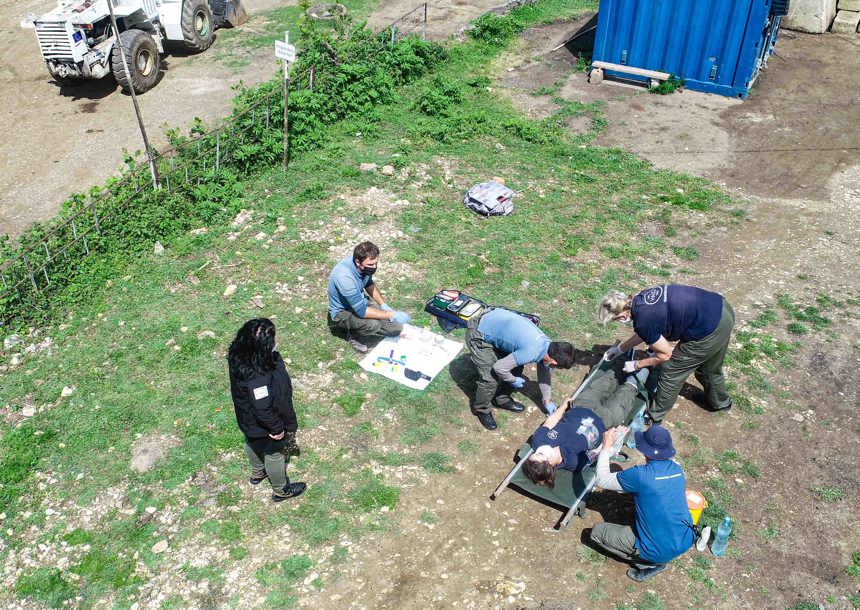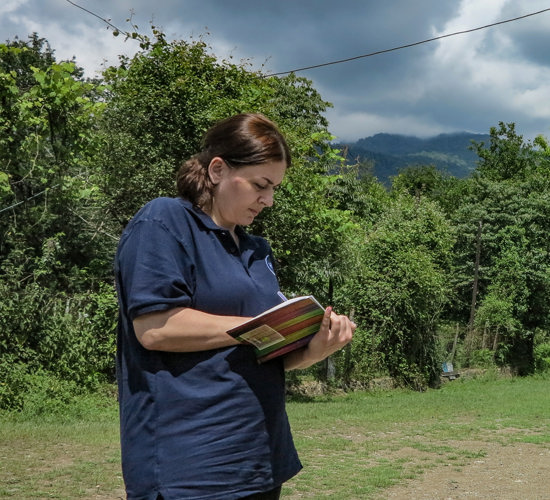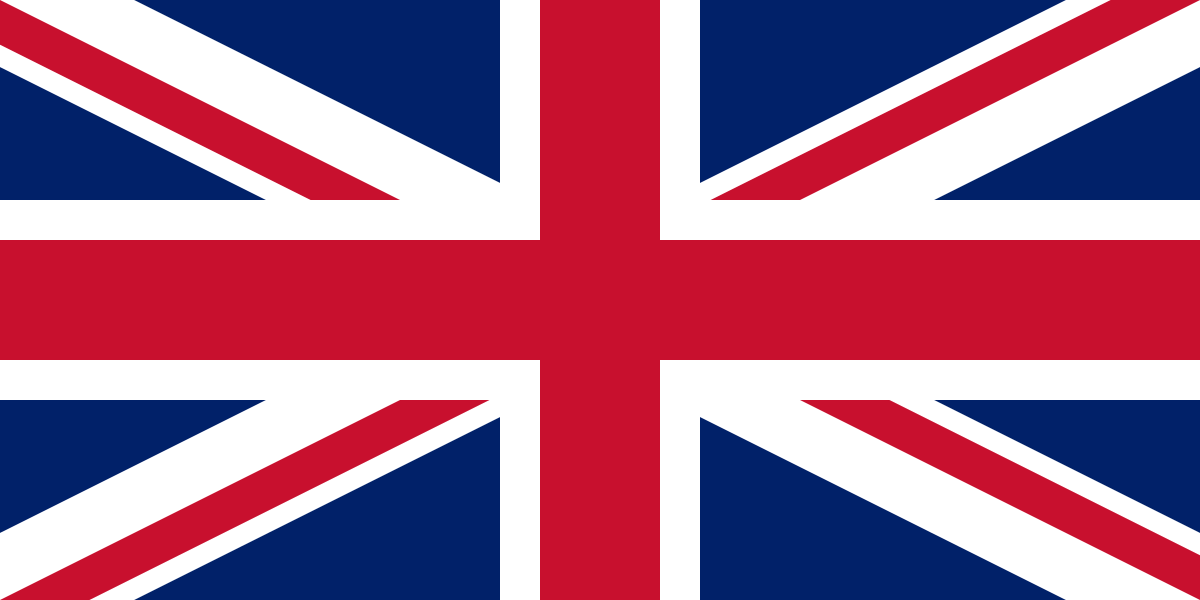For more than a quarter century, HALO’s Abkhazia programme on the Black Sea has been working to clear the dangerous items left behind from an armed conflict in the 1990s.
From the earliest days of the programme, women like Larisa and Asida have taken on both operational and administrative roles. Larisa is the programme’s senior medic and works on the Sukhumi-based Explosive Ordnance Disposal team, whilst Asida is the programme’s Community Engagement Officer and translator.
Together, they show the range of responsibilities women take on while working on a HALO programme. They share a dedication to making the region safer from explosives and the belief that women have a key role to play in this life-saving work.

Changing Attitudes
Larisa joined HALO in 1997, the early days of the Abkhazia programme, when traumatic memories of the fighting were fresh. “Back then people had a totally different reaction. People looked at us and said ‘Aren’t you scared? Mines are so dangerous’. But then their opinions changed. They saw the huge impact we were making”.
Asida heard similar comments when she took the job of Community Engagement Officer, despite the fact that she doesn’t handle explosives in her role. “When people hear the word ‘demining’, they immediately think it’s something dangerous. But with time this stereotype disappeared,” she says.
Women on the programme also face societal stereotypes about what kind of job they can or should do, but through their persistence these perceptions have gradually changed. Asida says: “We have had many women work in minefields and perform wonderfully. They proved that they are just as good as the men—maybe even better!”
Strong Motivations
Both women start their workday at 8:30am, but from there their routines diverge. Larisa joins the EOD team to review callouts received overnight from civilians reporting the location of a dangerous item. Then she heads out with the team to respond to these requests—depending on the locations, they might get through as many as three in one day before returning to the office. Asida’s position also frequently takes her into the communities to speak with local people.

Larisa overseeing medical training
Like all staff on the Abkhazia programme, Asida and Larisa draw strength from HALO’s mission to save lives and make the land safe. “My main motivation is knowing that I am clearing my native land from mines, shells and other dangerous items”, says Larisa. “Each item we find is a life saved. So you go out there and try always to keep yourself in proper form”. Asida finds meaning in her role, which brings her into contact with the programme’s many beneficiaries.

Both women find that working for HALO has also helped them develop professionally. They have had opportunities to improve their existing skills: Asida improves her English through conversations with native speakers, and Larisa deepens her medical knowledge each time members of HALO’s medical board visit the programme.
Sometimes, however, circumstances require programme staff to venture outside their comfort zones completely and step up to work on an unfamiliar project. During the early days of the pandemic, for example, Asida visited local hospitals to investigate what HALO could do to support them. “HALO made a big contribution to help people in Abkhazia during the pandemic”, Asida says. “We provided ambulances, medicines and COVID-19 tests, we did a great deal to help.”
Looking to the Future
On the occasion of International Women’s Day, Asida and Larisa share their hopes for a bright future ahead. “I would like to wish all the women of the world, and especially the women working for The HALO Trust, to be confident and persistent, to achieve their goals and not be afraid of anything”, says Asida, to which Larisa adds, “I wish all women health, happiness, career growth—and a clear sky overhead”.
Larisa and Asida’s work on the Abkhazia programme is supported by the UK Government



